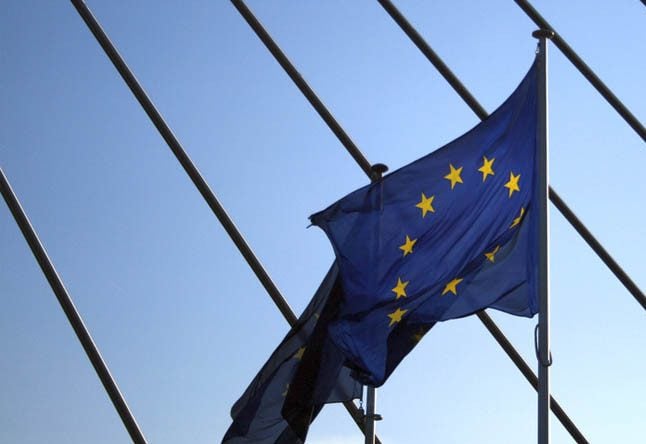The Commission welcomes the political agreement reached today by the European Parliament and EU Member States to ensure a more robust and effective supervision of central counterparties (CCPs) offering services to the EU.
This will contribute to preserving the financial stability in the EU.
EU CCPs, systemic market infrastructures in the financial system, are already well regulated and subject to stringent supervision, thanks to a raft of measures adopted in the wake of the financial crisis. The agreement upgrades the supervision of CCPs, established in EU and non-EU countries, offering or planning to offer services to EU clearing members and their clients, as well as to EU trading venues. The agreed rules build on the proposal to revise the European Market Infrastructure Regulation (EMIR) presented by the European Commission in 2017 as part of the Capital Markets Union project.
These new arrangements are important to protect financial stability due to the growing role of CCPs as intermediaries in financial transactions. Moreover, with the departure of the United Kingdom from the EU, a significant volume of financial instruments denominated in the currencies of Member States will be cleared by CCPs in non-EU countries.
Commission Vice-President Valdis Dombrovskis, responsible for Financial Stability, Financial Services and Capital Markets Union, said: “Today's political agreement on this important Capital Markets Union action delivers a sound framework for the supervision of EU and third-country CCPs. The continued safety and stability of our financial system is a priority. As we face the departure of the largest EU financial centre, the EU is protecting financial stability while remaining very open to international integration.”
Jyrki Katainen, Vice-President responsible for Jobs, Growth, Investment and Competitiveness, said: "The European institutions have worked hard to make our financial system safer. This agreement is an important achievement to ensure a robust and effective supervision of derivatives markets and to accelerate market integration in financial services."
The reform of EMIR introduces a more pan-European approach to the supervision of EU CCPs. It establishes, in particular, a Supervisory Committee within the European Securities and Markets Authority (ESMA) with independent members, national supervisors and central banks. For the supervision of third-country CCPs operating in the EU, based on the system of equivalence, it introduces a proportionate approach: some CCPs established outside the EU may be of such systemic importance that they require additional conditions to mitigate the potential risks.
In such instances, ESMA obtains additional supervisory tools. If this is not sufficient, the Commission can, upon request by ESMA, decide that a CCP will only be able to provide some or all of its services in the Union if it established in the EU. The Supervisory Committee also fosters convergence in the supervision of EU CCPs through more involvement of ESMA in certain supervisory decisions.
The Commission also welcomes the political agreement reached today by the European Parliament and EU Member States to amend the Statute of the European System of Central Banks and of the European Central Bank. The amendments equip the European System of Central Banks with the powers necessary to performthe tasks set in the amended EMIR Regulation.
Next Steps
Further technical work will follow this political agreement so that the European Parliament and the Council can formally adopt the final texts.
Background
As of end June 2018, the global outstanding notional value of over-the-counter (OTC) derivatives amounted to USD 595 trillion (source: Bank for international settlements). More than 60% of the global value of all OTC derivatives contracts and asset classes (interest rates, credit default, foreign exchange, etc.) is centrally cleared by CCPs. EMIR implements the 2009 G20 commitment to increase the stability of the OTC derivatives market in the EU. The main objective of EMIR is to reduce systemic risk by increasing the transparency of the OTC derivatives market, by mitigating the counterparty credit risk and by reducing the operational risk associated with OTC derivatives. It includes several measures: that all standardised OTC derivatives contracts be cleared through central counterparties (CCPs) and that OTC derivatives contracts be reported to trade repositories (TRs).
Today, there are 16 CCPs in the EU, and 32 CCPs outside the EU in 15 countries, which are allowed to offer their services to EU counterparties. Since EMIR was first adopted in 2012, CCPs have become a systemically-important part of the financial sector and their importance is growing.
The Commission carried out an extensive assessment of EMIR to ensure that EU legislation is working effectively and efficiently. In addition to the 2015 public consultation on EMIR, this proposal relies on input received from stakeholders from the public consultations on the operations of the European Supervisory Authorities (ESAs) and on the Capital Markets Union (CMU) Mid-Term Review. It also considers feedback received following the publication of the Commission Communication responding to challenges for critical financial market infrastructures and further developing the CMU and the Staff Working Document on EU equivalence decisions in financial services policy.
Source: European Commission














